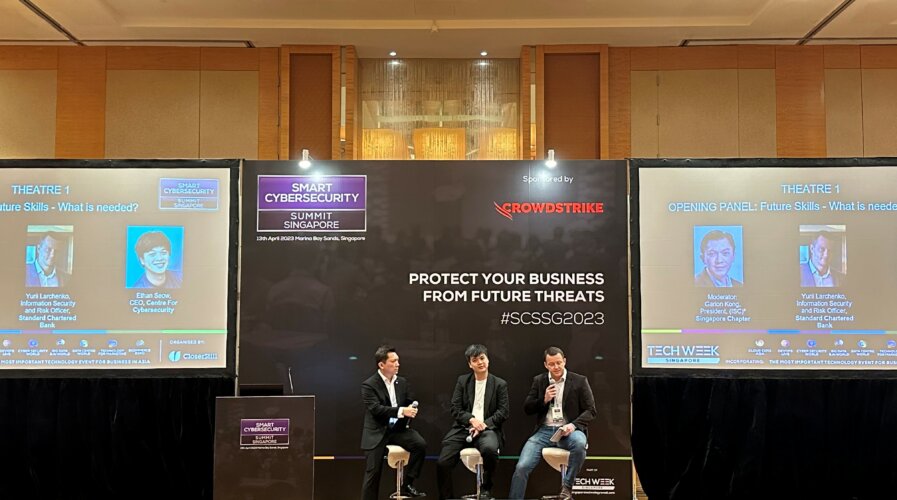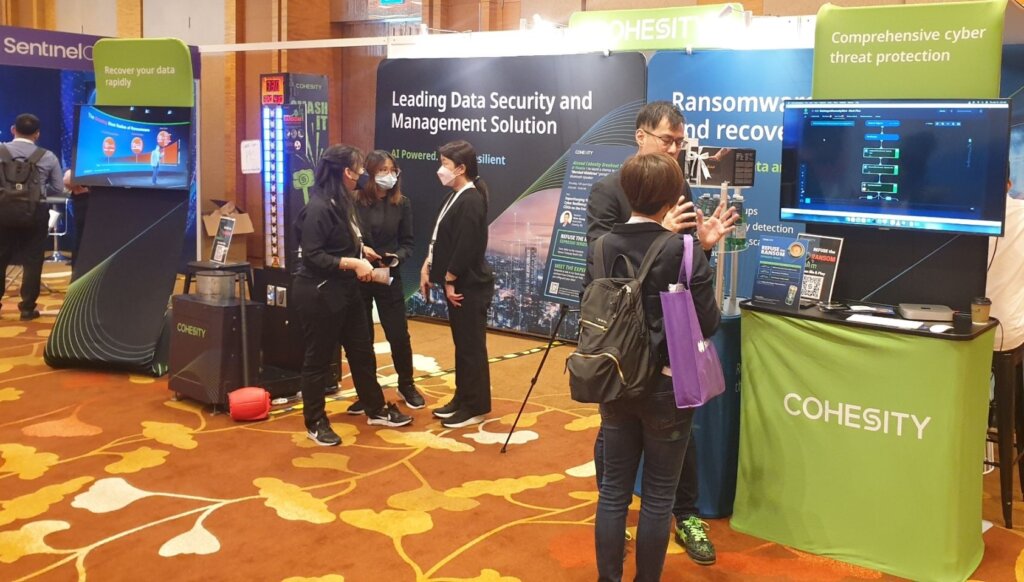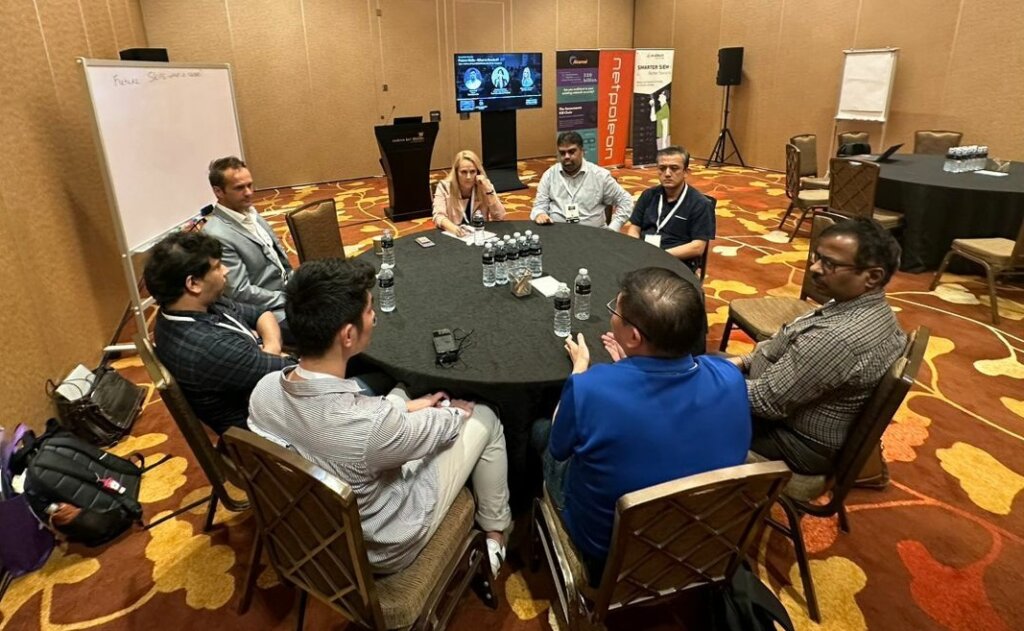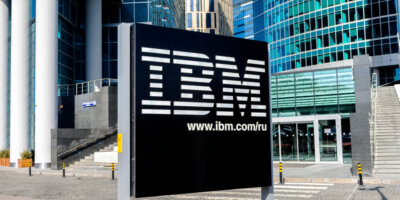
Discussing future skills at the Smart Cybersecurity Summit Singapore
Smart Cybersecurity Summit Singapore: Future skills, burnout and the boardroom
- The Smart Cybersecurity Summit in Singapore saw about 350 IT experts attending the one-day event.
- Each boardroom would need to have a member who is a cybersecurity expert, Group Chief Information Security Risk Officer of Standard Chartered Bank, shared during a panel session.
- Burnout is a big problem in cybersecurity
The Smart Cybersecurity Summit Singapore saw more than 350 cybersecurity pioneers and business leaders attended the one-day event, discussing the future skills needed in today’s cybersecurity landscape.
Powered by CloserStill Media’s award-winning CyberSecurity World Asia event, Group Event Director Dominic Pinfold shared his satisfaction over the event turnout.
“This is the first year considering we launched during the pandemic. The turn-up is great, and everyone has been having really interesting conversations around future skills, which is also a very hot topic within the industry,” Dominic told Tech Wire Asia on the sidelines of the Summit.
The Summit started with an opening panel with industry experts who shared their perspectives on the future skills needed in the evolving landscape encompassing data, cloud, mobile, network, IoT, critical infrastructure, and application security. The panel was moderated by Garion Kong, President of (ISC)² Singapore Chapter and featured Ethan Seow, CEO for Centre for Cybersecurity and Yurii Larchenko, Information Security and Risk Officer for Standard Chartered Bank.
In a separate session, Darren Argyle, Group Chief Information Security Risk Officer at Standard Chartered Bank highlighted need of boardrooms to have a cybersecurity expert member, given the increasing number of threats businesses are facing. He also believes having a cybersecurity expert, which would normally be the CISO as a board member would also enable the organization to have a better understanding on cyber threats and also make the right decisions when investing in cybersecurity.
“We will most likely be seeing more chief information security officers (CISOs) on the board in the future,” Darren said during the session.
Even Gartner has projected that 40% of boards of directors globally will have a cybersecurity committee overseen by a qualified member by 2025, up from less than 10% in 2021. “The long-term damage of a cyberattack to the value and reputation of an organization is incalculable, and that is why today, many boards seek members with cybersecurity knowledge and expertise,” Darren added.

(Source – Tech Wire Asia)
Cybersecurity is still a problem in Singapore
The one-day summit also saw several cybersecurity vendors participate and share insights on their latest findings. Among the cybersecurity vendors participating included CrowdStrike, Cohesity, Manage Engine, Hackuity, Verizon, Proofpoint, Synopsis and others.
During his presentation, CrowdStrike’s Sherif El-Nabawi, Vice President, Sales Engineering, Asia Pacific and Japan, shared statistics from their latest report and the threat landscape. Meanwhile, Cohesity’s Victor Keong, Field CISO, highlighted how they were able to help a customer in Thailand deal with a ransomware attack. Proofpoint’s Philip Sow, Manager, Sales Engineering in Southeast Asia and Korea spoke about the state of phishing in Singapore based on their 2023 State of Phish report.
Other panelists included representatives from Cyber Security Agency of Singapore (CSA). Veronica Tan, Director for Safer Cyberspace at CSA presented methods on security the supply chain, which was also one of the biggest cybersecurity concerns today. She also announced that CSA will soon be offering sessions on how businesses can develop their cybersecurity health plans.
Tech Wire Asia had the opportunity to speak to some of the attendees and panelists at the summit. Apart from zero-trust implementation remaining an issue, most of them felt that the skill shortage as well as the development needed for the future skills in cybersecurity still a big problem in the country.
Christopher Chai, solution director at Hackuity APJC, shared with TWA how the pandemic turned out to be a security executive’s worst nightmare due to the increased number of vulnerabilities. He reckons how, in an already demanding role, CISOs have had to take the reins of their organizations to combat ever-growing cybersecurity threats, further exacerbated by the shift to an almost complete remote workforce.
“CISO burnout is real. The entire security team is burning out. Companies should design a robust cyber hygiene program to manage everyone’s workload and prevent them from burning out,” Chai said.

(Source – Tech Wire Asia)
In a roundtable discussion moderated by Aaron Raj, editor of TWA that featured cybersecurity personnel from various organizations, the focus was also on how tech employees can leverage technologies like AI to improve their work. Suggestions from the panelists included the need to have a career roadmap planned for those joining the cybersecurity field as well as automating certain mundane processes so that the role may seem more exciting for them.
With cybersecurity constantly evolving and cybercriminals improving their tactics, there is no denying that the future skills of cybersecurity would have to be a continuous learning process. While summits like these offer participants the opportunity to share knowledge and gain insights on the latest trends in cybersecurity, the reality is, the journey in cybersecurity will continue to be a challenge. At the end of the day, businesses need to be proactive in their cybersecurity and ensure they have the skills required to deal with the problem.
READ MORE
- 3 Steps to Successfully Automate Copilot for Microsoft 365 Implementation
- Trustworthy AI – the Promise of Enterprise-Friendly Generative Machine Learning with Dell and NVIDIA
- Strategies for Democratizing GenAI
- The criticality of endpoint management in cybersecurity and operations
- Ethical AI: The renewed importance of safeguarding data and customer privacy in Generative AI applications


